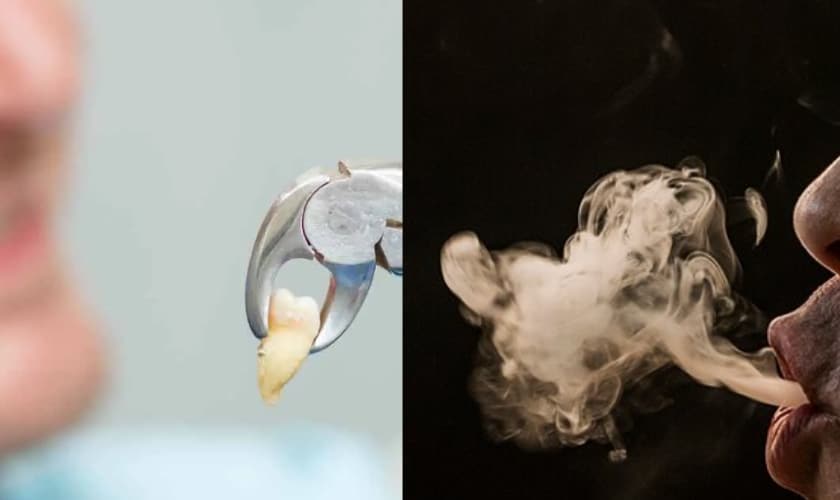Many people don’t think twice about smoking after a tooth extraction. Despite their dentist’s advice and the responsibility to care, they often dismiss the warnings—especially when they don’t see any immediate negative effects. Since the damage isn’t always visible right away, it’s easy to ignore. But why is smoking right after an extraction so harmful?
Table of Contents
Today, we’re not just going to tell you not to smoke—we’re going to explain why you shouldn’t. It’s time to uncover the real risks behind this common yet overlooked habit.
Why Smoking After Tooth Extraction is Considered Harmful Dry Socket
Dry socket, also known as alveolar osteitis, is a painful dental condition that can occur after tooth extraction. Dry socket, also known as alveolar osteitis, is a painful dental
condition that can occur after tooth extraction. It occurs when a blood clot that forms in the socket after tooth extraction dislodges or dissolves before the wound heals. This exposes the underlying bone and nerves, leading to severe pain and delayed healing.
The biggest cause of dry socket is smoking. The chemicals in cigarettes might prevent proper blood clot formation and be a cause of dry socket.
Slowing Down of the Healing Process
In addition to dry socket, the chemicals in nicotine seriously slow down the healing process, tissues heal more slowly because blood circulation is slowed down by nicotine.
Discomfort C Pain
After tooth extraction, the mouth area becomes sensitive and more prone to inflammation and infection. This is where our body’s defense mechanism kicks in. It is important to support the immune system after tooth extraction for a healthy, painless, infection-free healing process, and smoking suppresses our healing mechanism resulting in painful and long recovery process.
So How Long Should We Wait to Smoke After Tooth Extraction?
It’s recommended that you do not smoke for at least 72 hours after tooth extraction. This period can be longer, the longer the better, we can say that a week is ideal. Let’s not limit this suggestion to cigarettes, you should stay away from electronic cigarettes, all kinds of tobacco, and all kinds of substances containing nicotine. There is a prejudice that electronic cigarettes are less harmful, but unfortunately this does not reflect the truth.
Those Who Cannot Quit Smoking Even Temporarily
If you say that you know all the risks, and you don’t want to harm yourself, but you can’t live without cigarettes, you can’t quit even for 2 days. There are many people in your situation. So what can you do in this situation? Is there a way to reduce the harm of nicotine?
Yes, there is. Instead of smoking – inhaling, you can use a nicotine patch. This allows your body to have nicotine which it’s addicted to while preventing chemicals from harming you with the smoke.
The second tip is to wait as long as possible and reduce the frequency. Try distracting yourself with gum or sugar-free candy, you can use this as an excuse to quit smoking and do yourself a favor.
If you feel like you need to smoke, use a gauze pad, cover your wound. After smoking, you should rinse your mouth with a medical mouthwash, make sure to clean your mouth gently.
As a Conclusion
Smoking after a tooth extraction especially a wisdom tooth removal , can lead to serious complications such as dry socket, pain, soreness, delayed healing, infection, and inflammation. Since tooth extraction is already an uncomfortable process, smoking only makes it worse. To protect your health and ensure a smoother recovery, it’s best to quit smoking temporarily, try the alternatives mentioned above, or even use this as an opportunity to quit for good.
Have you ever tried quitting smoking after a tooth extraction? Feel free to share your experience with us!




